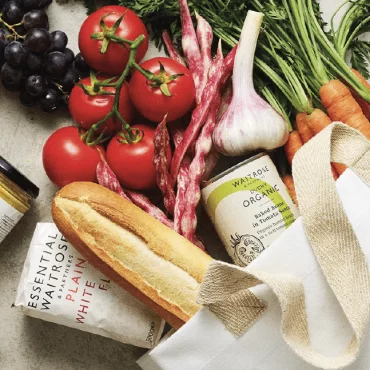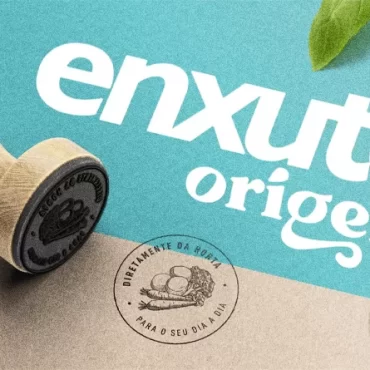Reinventing Brazil

Get inspired
By Rodrigo Forbeck
Photo: Apex-Brasil Press Office
Thinking way beyond stereotypes. Mixing innovation, culture, technology and brazilian joy with attractive strategies to foreign investors. By keeping one eye on the creativity Brazil has always had, and another on technologies and recently achieved structures, Maurício Borges has been getting the national design to be seen in a new way abroad. Appointed by president Dilma Rousseff herself, Borges took over Apex-Brasil – the Brazilian Agency for the Promotion of Exports and Investments – in 2011 and, since then, has been surprising the export market with different business platforms, taking advantage of the warm environment and welcomeness that charm foreigners. A bachelor in Legal Sciences from the University of São Paulo (USP), with a doctorate in International Law and a masters in European Commercial Law from the University of Bristol, in England, Apex-Brasil’s president believes that the crisis in the developed markets forces those who have dealt with hardship in the past to look for alternatives. Put another way: brazilians have been through decades of economic instability, which gives them the experience of what many other markets haven’t gone through and are able to, therefore, offer them innovative and sustainable solutions. “The world has decreased its commercing pace, but there are always opportunities. If a country is in crisis, it’s possible to focus on products that will help them face that crisis”, he surmises. And how to present our ideas to those who see Brazil only as a commodity provider? One of the strategies by Apex-Brazil’s president is to actually build an experience with Brazil’s brand, taking advantage of large international events like Carnaval or, recently, the World Cup. The idea is to bring executives and buyers closer in an informal environment, building trusting relationships that culminate in new businesses. Borges invites them to festive events and uses the visit to show that the brazilian industry’s potential is way beyond what was thought years ago. According to a report by Apex-Brasil, the results from the entity’s actions during the World Cup in Brazil, at which around 2386 businesspeople and investors from 104 countries were present, prove that the strategy has been generating results. “In the next 12 months $6 billion dollars in exports and investments are forecasted to be brought into the country”, highlights Maurício Borges. “Many didn’t imagine what brazilian technology, know-how and creativity were like. Design and innovation are among our main tools for the increase of competitivity abroad” he tells. During the World Cup alone, 2.3 thousand foreign guests were welcomed by over 700 brazilian companies and sectorial entities. An enthusiast of design and innovation as fundamental elements for competitiveness, Borges has been betting on relationship marketing as a strategy to make brazilian creativity known. Also, foreign investors heavily value continuity and, within Apex-Brasil, Maurício is aware of their concerns. “Today, companies supported by the agency have a rate of 80% permanence in the export activity, while companies not supported by Apex-Brasil show a rate of only 45%”, he states. PANDE, for instance, was able to get acquainted with the best internationalization strategies thanks to the Brasil Design project, a program by Abedesign (Association of Brazilian Design Companies) which promotes several expansion actions for brazilian design abroad and counts on the support from Apex-Brasil. In the program, the company was prepared to detect the opportunities and business potential of the international markets being prospected. The result of that support is made evident by the increase of 400% in its export volume in the first quarter of 2014, compared with the same period in 2012.
The theory that innovative companies are international by vocation is backed up by the study “Innovations, technological standards and performance of brazilian industrial companies”, carried out by Ipea (Institute of Applied Economic Research). According to the study, innovative companies are 16% more likely to succeed at exporting and are able to place their products abroad at a higher value than the rest of the exporting companies. And if, on one hand, Brazil has lost part of the demand from its older markets, such as Argentina, it can start to prepare itself to show up in previously unimaginable places. Borges predicts that “in the medium-term, between two and five years, we can start to think of markets that have been showing growth, like the african countries of Mozambique, Nigeria and Angola, the asian countries of China, India and Indonesia, and south american Peru and Colombia. Also, Mexico, Russia and the United Arab Emirates. Simultaneously, we’ll keep working with robust markets such as the United States, Germany, England and Japan”. None of the shots is made in the dark, he assures. “The availability of informations about the external markets, through commercial intelligence, is the strategic information service provided by Apex-Brasil to companies and sectorial entities that participate in our projects. It’s an essential work, which evaluates the needs, demands, the characteristics of a certain market, before we even begin prospecting. And the training programs help develop, in the companies, the necessary skills to act on international markets. Within that scope, we evaluate the processes and even the quality of the exported products and services”. With the support it needs to position itself strategically abroad, national design has been proving competitive, attractive and capable of boosting the creative and innovative potential from Brazil to the entire world.



